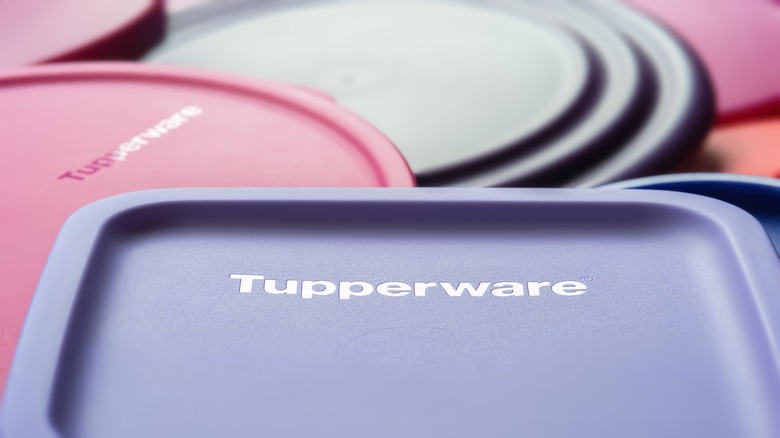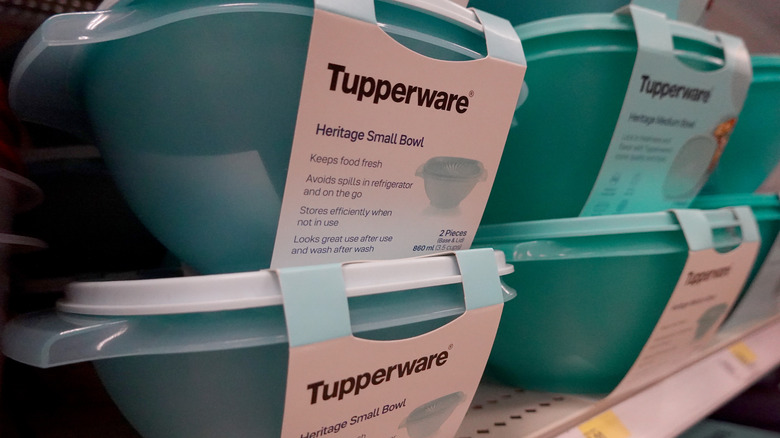The Iconic Tupperware Brand Officially Files For Bankruptcy
In a move that is surprising virtually nobody, Tupperware has officially filed for Chapter 11 bankruptcy. The brand has been on a steady decline for a decade, with the bankruptcy filing amounting to only the latest attempt on the part of the company to stave off complete dissolution.
Although it doesn't tell the whole story, Tupperware's stock price does have an alarming tale to tell. The company started back in the 1940s thanks to the efforts of the chemist Earl Tupper. The company went public in 1996 and reached an all time high of $96.43 per share in December of 2013. At the time of writing, the stock price has dropped to a crushing $0.51. But while the stock price does give us some insight, pinpointing exactly where the blame lies in Tupperware's fall is complicated.
To put it briefly, the company has suffered from an inability to adapt to a digital marketplace and to shifting consumer preferences. According to Axios, roughly 80% of Tupperware's sales are direct sales, meaning the consumer is coming directly to Tupperware to purchase a product (often as part of the odd social practice known as Tupperware Parties) as opposed to purchasing through a major retailer (either digital or physical). Tupperware teamed up with Target in 2022, but it appears to have been too little, too late. And with more consumers preferring non-plastic food storage containers, plastic Tupperware products simply lost much of their appeal to a new generation.
A household brand name that failed to adapt
What's most surprising about this lengthy decline in Tupperware's popularity is that the brand name has achieved what any company would kill to have: a generic brand. Similar to how facial tissue is commonly referred to as Kleenex or how adhesive bandages are known as Band-Aids, both of which are actually company brand names, food storage containers are regularly referred to as Tupperware even when the product is not made by Tupperware.
Yet despite the brand name recognition, the company has failed to acclimate to a changing market landscape and is suffering because of it. In April of last year, Tupperware announced in a regulatory filing that the company was falling on hard times. Shares plummeted as rumors of bankruptcy floated around. Keep in mind that a Chapter 11 bankruptcy is a common business practice for companies that are suffering under a burden of debt. It allows businesses to protect assets from creditors while reorganizing in the hopes of becoming profitable again.
The process will likely take months, and new leadership should be expected. Whether that new leadership can help right the boat remains to be seen. Intuitively, a casual observer might assume that Tupperware's bankruptcy filing is due to the economic hardships brought on by the pandemic, not unlike how several pizza chain restaurants have been filing for bankruptcy lately. But while lockdowns likely affected the company, Tupperware's problems run much deeper and have been piling up for years.

